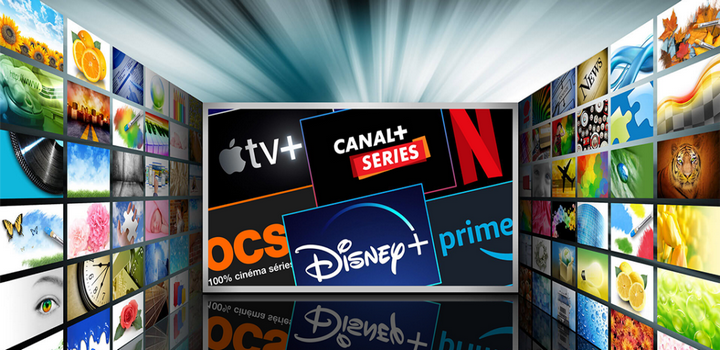Understanding IPTV: The Future of Television
What is IPTV?
Internet Protocol Television (IPTV) is a method of delivering television programming and other multimedia content over the internet rather than through traditional means such as satellite or cable. With IPTV, viewers can stream content in real time, providing a more flexible and customizable viewing experience. The technology relies abonnement iptv on a broadband internet connection, allowing users to access a wide range of channels and on-demand content directly through their smart TVs, computers, tablets, or smartphones.
How IPTV Works
IPTV utilizes a suite of protocols for delivering digital television content. Unlike traditional broadcasting, which sends signals over the air or through cables, IPTV delivers data packets over the internet. This process involves several key components:
- Content Acquisition: IPTV providers obtain content through licensing agreements with content creators and distributors. This includes live TV channels, movies, and on-demand programming.
- Encoding and Compression: To optimize content for streaming, IPTV services encode and compress video data, making it suitable for internet transmission while maintaining quality.
- Content Delivery Network (CDN): CDNs play a crucial role in distributing content efficiently. They store copies of content at various locations worldwide, ensuring that users can access it quickly and with minimal buffering.
- User Interface and Middleware: IPTV services provide a user-friendly interface that allows viewers to navigate through channels, access on-demand content, and utilize interactive features like video-on-demand (VOD) and digital video recording (DVR).
- Devices: Users can access IPTV through a range of devices, including smart TVs, set-top boxes, gaming consoles, and mobile devices, making it versatile and widely accessible.
Benefits of IPTV
IPTV offers several advantages over traditional television services:
- Flexibility and Customization: Users can choose from various subscription packages that suit their preferences, allowing them to pay only for the channels and content they want. Additionally, many IPTV services provide on-demand content, enabling viewers to watch shows and movies at their convenience.
- Interactive Features: IPTV services often include interactive features such as pause, rewind, and fast-forward options, as well as access to additional content and information about programs.
- High-Quality Streaming: With the advancement of internet speeds and streaming technologies, IPTV can deliver high-definition (HD) and even 4K content, providing a superior viewing experience.
- Global Access: IPTV enables users to access international content from around the world, breaking down geographical barriers and expanding entertainment options.
Challenges Facing IPTV
Despite its many advantages, IPTV also faces several challenges:
- Internet Dependence: IPTV relies on a stable and high-speed internet connection. Users in areas with poor internet service may experience buffering or low-quality streaming.
- Regulatory Issues: IPTV services can sometimes navigate complex legal and regulatory environments, particularly regarding licensing agreements for content distribution.
- Piracy Concerns: The availability of unauthorized IPTV services poses a threat to legitimate providers and content creators. Users must be cautious when selecting IPTV subscriptions to avoid illegal services that may infringe on copyright laws.
The Future of IPTV
As technology continues to evolve, the future of IPTV looks promising. With the rise of 5G networks and advancements in internet infrastructure, users can expect even faster and more reliable streaming experiences. Additionally, the increasing integration of artificial intelligence (AI) in content recommendation systems will enhance personalization, making it easier for viewers to discover new shows and movies tailored to their tastes.
Moreover, the growth of smart home devices and the Internet of Things (IoT) will allow IPTV to expand beyond traditional screens. Imagine controlling your viewing experience through voice commands or seamlessly integrating content with other smart devices in your home.
Conclusion
IPTV represents a significant shift in how we consume television content, providing viewers with greater flexibility, interactivity, and access to diverse programming. As the industry continues to innovate and address challenges, IPTV is poised to become an integral part of the entertainment landscape, shaping the future of television for generations to come. Whether you’re a casual viewer or a dedicated cinephile, IPTV offers a world of possibilities at your fingertips.



